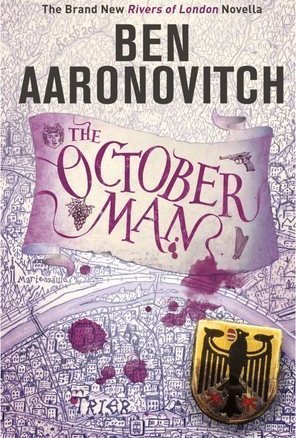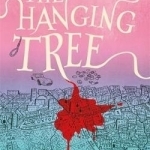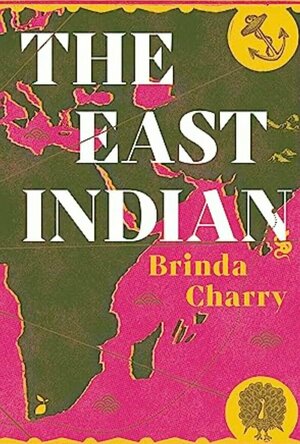Search
Search results
Christine A. (965 KP) rated The October Man (Rivers of London #7.5) in Books
Jul 16, 2019
Novella set in Germany. Book 7.5 of the Rivers of London series.
I was provided with a complimentary copy of this book so I could give an honest review.
The October Man by Ben Aaronovitch is the "#7.5" book in his Rivers of London series. I read the first book, Rivers of London for book club last year and has marked the 2nd book, Moon over Soho, to be read on Goodreads. When the opportunity arose to read this novella, I jumped at the chance. To give a fair review, I read books 2 - 7, not including the novellas, before reading this.
Peter Grant is mentioned in the novella but his German equivalent, Tobias Winter, leads this investigation set in Trier, Germany's oldest city.
While Aaronovitch's writing style and humor show through, I missed the characters I have been fortunate enough to meet in the books set in London. The backdrop of London has become as important as any of the characters.
Setting the novella in Germany was interesting because it allowed us to see the difference between how the German's investigate and the Folly. It brought the magical world into a different point of view as when FBI agent Kimberley Reynolds was around. I would have enjoyed this more if Peter Grant had helped with Tobias Winter's investigation.
I already marked book 8, False Value, to be read.
This 200-word review was published on Philomathinphila.com on 7/15/19.
The October Man by Ben Aaronovitch is the "#7.5" book in his Rivers of London series. I read the first book, Rivers of London for book club last year and has marked the 2nd book, Moon over Soho, to be read on Goodreads. When the opportunity arose to read this novella, I jumped at the chance. To give a fair review, I read books 2 - 7, not including the novellas, before reading this.
Peter Grant is mentioned in the novella but his German equivalent, Tobias Winter, leads this investigation set in Trier, Germany's oldest city.
While Aaronovitch's writing style and humor show through, I missed the characters I have been fortunate enough to meet in the books set in London. The backdrop of London has become as important as any of the characters.
Setting the novella in Germany was interesting because it allowed us to see the difference between how the German's investigate and the Folly. It brought the magical world into a different point of view as when FBI agent Kimberley Reynolds was around. I would have enjoyed this more if Peter Grant had helped with Tobias Winter's investigation.
I already marked book 8, False Value, to be read.
This 200-word review was published on Philomathinphila.com on 7/15/19.
David McK (3692 KP) rated The Furthest Station (Peter Grant, #5.5) in Books
Feb 19, 2019
I read the first entry in Ben Aaronovitch's Peter grant series (Rivers of London) a few years back.
It was an OK read, but didn't really grab me enough to want to go out and pick up others in the series.
However, this novella was recently on sale on Amazon Kindle a while back for something like 99 pence, so I thought I would give it another go. And what is immediately obvious is just how much I've missed by skipping those full-length novels in-between Rivers of London (#1) and this (# 5.5).
Which is probably why I struggled to get into this: as before, I found this an OK read (once I got past the initial "who's s/he now? What're they talking about?" confusion, but nothing that would pull me back into the world of PC Grant
It was an OK read, but didn't really grab me enough to want to go out and pick up others in the series.
However, this novella was recently on sale on Amazon Kindle a while back for something like 99 pence, so I thought I would give it another go. And what is immediately obvious is just how much I've missed by skipping those full-length novels in-between Rivers of London (#1) and this (# 5.5).
Which is probably why I struggled to get into this: as before, I found this an OK read (once I got past the initial "who's s/he now? What're they talking about?" confusion, but nothing that would pull me back into the world of PC Grant
Alice (12 KP) rated Hanging Tree: The Sixth PC Grant Mystery in Books
Jul 3, 2018
What can I say about The Hanging Tree that isn’t good? It was a satisfying installment to the series but there was still something missing for me. It had the usual characters and the usual awkwardness with Peter Grant and the Met and the demi-monde which as always was written to the same standard.
However, there were a few parts of this book that bugged me which I’ll go through shortly.
The Hanging Tree is the sixth installment of the bestselling Peter Grant/Rivers of London series and finally there is some proper river action. This book centers around Tyburn or Lady Ty as she is affectionately known. Lady Ty for those of you who don’t know is an overwhelming bitch with a major Goddess complex – with good reason really.
This book follows Peter as he helps to investigate the murder of a teenager – don’t let this fool you, the principal suspect in the murder is one of the family Rivers. This kicks off simultaneous police investigations and Folly blow-ups abound.
First, the things I liked:
The reappearance of much loved characters such as Nightingale, Molly, Guleed, Stefanopaulos and even Seawoll.
The introduction of new characters
The familiar writing style
The monologuing of Peter Grant
The plot
The return of some characters I won’t name and
The revelations!!!
Now, I hate to do this really (and I despise using bullet points as a side note) but needs must.
Things I disliked:
The overuse of the term white to describe characters that had no context and almost no bearing on the story-line whatsoever – I’m almost positive I counted at least 15 uses of the word “white” in the first 30% of the book, sometimes more than once a page. The worst use of this – for me – was “a scary white waitress”, I don’t know about you, but the need to describe a character based solely on their skin tone is a big no no for me. It lacked context and bearing on the part of the story at hand.
The return of some characters I won’t name – what the actual fuck Ben? That’s wrong! They can’t be better than Peter!
Now despite my reservations and the things I disliked, I did enjoy this book. In the end. It took about 60% for this book to grab my attention with both hands which I suppose could be construed as a bad thing, however that first two thirds set up the ending in a great way. The culmination of multiple prolonged story arcs were a welcome wrap up to this installment and I look forward to the next.
However, there were a few parts of this book that bugged me which I’ll go through shortly.
The Hanging Tree is the sixth installment of the bestselling Peter Grant/Rivers of London series and finally there is some proper river action. This book centers around Tyburn or Lady Ty as she is affectionately known. Lady Ty for those of you who don’t know is an overwhelming bitch with a major Goddess complex – with good reason really.
This book follows Peter as he helps to investigate the murder of a teenager – don’t let this fool you, the principal suspect in the murder is one of the family Rivers. This kicks off simultaneous police investigations and Folly blow-ups abound.
First, the things I liked:
The reappearance of much loved characters such as Nightingale, Molly, Guleed, Stefanopaulos and even Seawoll.
The introduction of new characters
The familiar writing style
The monologuing of Peter Grant
The plot
The return of some characters I won’t name and
The revelations!!!
Now, I hate to do this really (and I despise using bullet points as a side note) but needs must.
Things I disliked:
The overuse of the term white to describe characters that had no context and almost no bearing on the story-line whatsoever – I’m almost positive I counted at least 15 uses of the word “white” in the first 30% of the book, sometimes more than once a page. The worst use of this – for me – was “a scary white waitress”, I don’t know about you, but the need to describe a character based solely on their skin tone is a big no no for me. It lacked context and bearing on the part of the story at hand.
The return of some characters I won’t name – what the actual fuck Ben? That’s wrong! They can’t be better than Peter!
Now despite my reservations and the things I disliked, I did enjoy this book. In the end. It took about 60% for this book to grab my attention with both hands which I suppose could be construed as a bad thing, however that first two thirds set up the ending in a great way. The culmination of multiple prolonged story arcs were a welcome wrap up to this installment and I look forward to the next.
ClareR (6062 KP) rated The East Indian in Books
Jul 13, 2023
I loved The East Indian by Brinda Charry, but boy did it make me mad!
“Tony” (so named because a British man couldn’t pronounce his real name, and we never find out what that is) comes from the Coromandel coast. He travels to London with a white man in order to be his servant, but the man dies on the voyage. In London, Tony has to fend for himself, a child alone in a big city that takes advantage of the vulnerable. Unsurprisingly, Tony is kidnapped, transported to America, and becomes an indentured servant. It looks as though his dreams of becoming a medicine man will never come to pass. But he does make friends with some of the boys on the voyage. When he arrives in America, he is mistaken for a native Indian - he isn’t as black as the Africans - and he’s often referred to as a ‘Moor’.
There’s little wonder that Tony has so many friends, he’s a likeable boy. He hates to see the maltreatment of his fellow indentured servants and slaves.
This book illustrates the lives of indentured servants and the beginning of slavery under British rule in the colonies. It’s not a nice way to live; seen through the eyes of a child it’s both less and more horrific. Tony doesn’t necessarily see how bad things are, because he has no comparison until he starts to get older.
The most infuriating part for me (it’s a long list!), was how Tony and the Africans were ‘othered’ by the white man: they weren’t to be trusted, their ways of life were seen as primitive, they were seen as a belonging or little better than animals.
This book predates slavery as it was to become, but you can see the beginnings of it. As an indentured servant, you belonged to your master.
Jamestown is described so well (sights, sounds and smells) as are the wilder areas: the forests, mountains and rivers. It sounded beautiful, kept that way by Native Americans who were already being driven from their homeland.
It’s a sobering, beautiful story, and I’m so glad that I got the chance to read it - thanks Pigeonhole!
“Tony” (so named because a British man couldn’t pronounce his real name, and we never find out what that is) comes from the Coromandel coast. He travels to London with a white man in order to be his servant, but the man dies on the voyage. In London, Tony has to fend for himself, a child alone in a big city that takes advantage of the vulnerable. Unsurprisingly, Tony is kidnapped, transported to America, and becomes an indentured servant. It looks as though his dreams of becoming a medicine man will never come to pass. But he does make friends with some of the boys on the voyage. When he arrives in America, he is mistaken for a native Indian - he isn’t as black as the Africans - and he’s often referred to as a ‘Moor’.
There’s little wonder that Tony has so many friends, he’s a likeable boy. He hates to see the maltreatment of his fellow indentured servants and slaves.
This book illustrates the lives of indentured servants and the beginning of slavery under British rule in the colonies. It’s not a nice way to live; seen through the eyes of a child it’s both less and more horrific. Tony doesn’t necessarily see how bad things are, because he has no comparison until he starts to get older.
The most infuriating part for me (it’s a long list!), was how Tony and the Africans were ‘othered’ by the white man: they weren’t to be trusted, their ways of life were seen as primitive, they were seen as a belonging or little better than animals.
This book predates slavery as it was to become, but you can see the beginnings of it. As an indentured servant, you belonged to your master.
Jamestown is described so well (sights, sounds and smells) as are the wilder areas: the forests, mountains and rivers. It sounded beautiful, kept that way by Native Americans who were already being driven from their homeland.
It’s a sobering, beautiful story, and I’m so glad that I got the chance to read it - thanks Pigeonhole!



